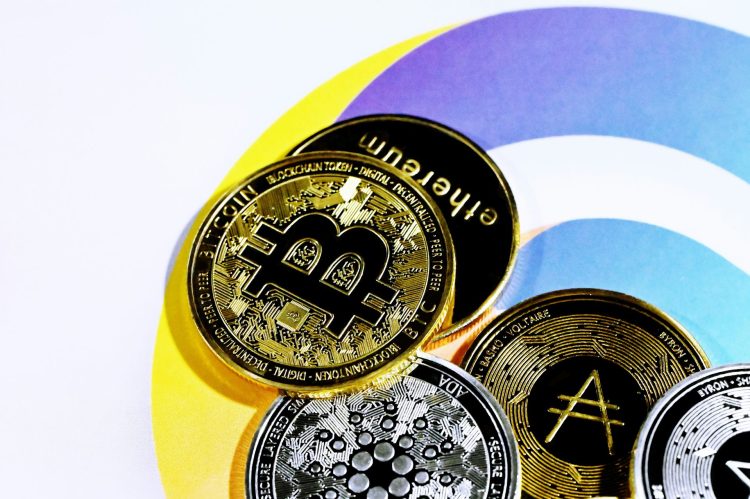The swift evolution of the iGaming industry has always been closely tied to technological progress. From PC gaming to live dealer casino platforms, the industry is constantly on the lookout for innovations that elevate user experience and expand its audience. One of the most transformative forces currently revolutionizing gaming experiences is cryptocurrency. Here’s a look at how it’s driving the current gaming ecosystem.
By integrating blockchain technology and digital currencies, online casinos make payments safer for players, offering transparency and control. The same happens with the so-called NFT games, where players can grind and buy items with crypto or convert game money into currencies and add to their wallet or metamask.

Why casinos are embracing cryptocurrency
One of the most significant challenges for online casinos is managing payments across diverse regions, each with its own preferred methods, regulations, and currencies. Among numerous advantages, cryptocurrency offers a universal solution to this complexity. Unlike traditional payment systems that often require casinos to maintain multiple integrations and comply with various legal frameworks, cryptocurrency operates on a decentralized network. This allows players from any part of the world to participate without the need for currency conversion or dealing with regional payment restrictions.
For players, this means faster and more straightforward transactions. A deposit or withdrawal using cryptocurrency is typically processed almost instantly, eliminating the delays that can occur with bank transfers or other traditional methods. This speed enhances the gaming experience, encouraging longer play sessions and more frequent returns to the platform, similar to PIX in Brazil.
In an industry where trust is crucial, cryptocurrency is becoming a game-changer. Reliable casinos are increasingly offering cryptocurrencies as a payment option, especially appealing to millennials. According to payment research by KTO, which is a reliable casino online in Brazil, 10% of millennials prefer them for online gaming. However, structural challenges, such as anti-money laundering protocols and conflicting investment purposes, limit their wider adoption, keeping cryptocurrencies as a niche payment option despite their growing popularity in the Brazilian iGaming market.

Every bet, win, and payout is recorded on the blockchain, making it nearly impossible to manipulate or alter the data. This transparency is particularly appealing in regions where online gambling is heavily regulated, as it provides an auditable trail of all financial activity. Another compelling advantage is the reduction in transaction costs. Traditional payment methods, particularly those involving cross-border transactions, often come with high fees due to the involvement of multiple banks and payment processors. These fees can quickly add up, cutting into the profits of both the casino and the players.
Cryptocurrency transactions, however, typically involve minimal fees, as they bypass these intermediaries. This cost efficiency is particularly beneficial for high-volume transactions, making it an attractive option for both casual players and high rollers.
Revolution of the iGaming landscape
The integration of cryptocurrency into the iGaming industry is not just a trend; it represents a fundamental shift in how online casinos operate. By adopting digital currencies, online casinos are streamlining their operations while enhancing the overall gaming experience for their users.
Beyond payment processing, cryptocurrency is also revolutionizing the way in-game assets are handled. Through the use of Non-Fungible Tokens (NFTs), players can now own and trade unique digital assets within games. These assets, ranging from virtual property to rare in-game items, have real-world value and can be bought, sold, or traded on open marketplaces. This adds a new layer of engagement for players, as their in-game achievements can translate into tangible rewards.
As examples, let us mention two very different NFTs. Axie Infinity is a game where players collect, breed, and battle creatures called Axies, each of which is an NFT with unique traits. These Axies can be bought, sold, or traded on the blockchain-based marketplace using the in-game currency, Smooth Love Potion (SLP), and the governance token, Axie Infinity Shards (AXS). Players earn SLP and AXS through gameplay, and these tokens can be exchanged for real-world currency on various cryptocurrency exchanges. Additionally, land and items within the game are also NFTs, allowing players to own and trade valuable in-game assets, creating a play-to-earn model.

Meanwhile, in the game MIR4, cryptocurrency and NFTs are integrated into the gameplay through the use of DRACO, a blockchain-based token that players can earn by mining the in-game resource called Darksteel. Players can then convert Darksteel into DRACO, which can be traded on cryptocurrency exchanges or used to purchase in-game items. Additionally, MIR4 allows players to mint in-game characters and items as NFTs, which can be sold or traded on various blockchain marketplaces, giving players the ability to monetize their in-game progress and assets in the real world.
One is an MMORPG, and the other is a turn-based strategy game, yet both have successfully created their own in-game currencies and self-sustaining ecosystems. While the value of these currencies has fluctuated, which is entirely normal, the systems remain robust. NFTs within these games serve as prime examples of how cryptocurrencies can be generated within a game environment through time investment and character development, all without the need for real-world money. This innovation highlights the potential of NFTs to enrich the gaming experience by rewarding players for their in-game efforts.
As the iGaming industry continues to evolve, the role of cryptocurrency is expected to grow even more significant. The advantages of faster transactions, lower fees, enhanced security, and privacy make it a natural fit for online casinos looking to stay ahead of the curve. Moreover, as blockchain technology advances, we can expect to see even more innovative applications of cryptocurrency within the gaming world.
Featured image credit: Traxer / Unsplash




